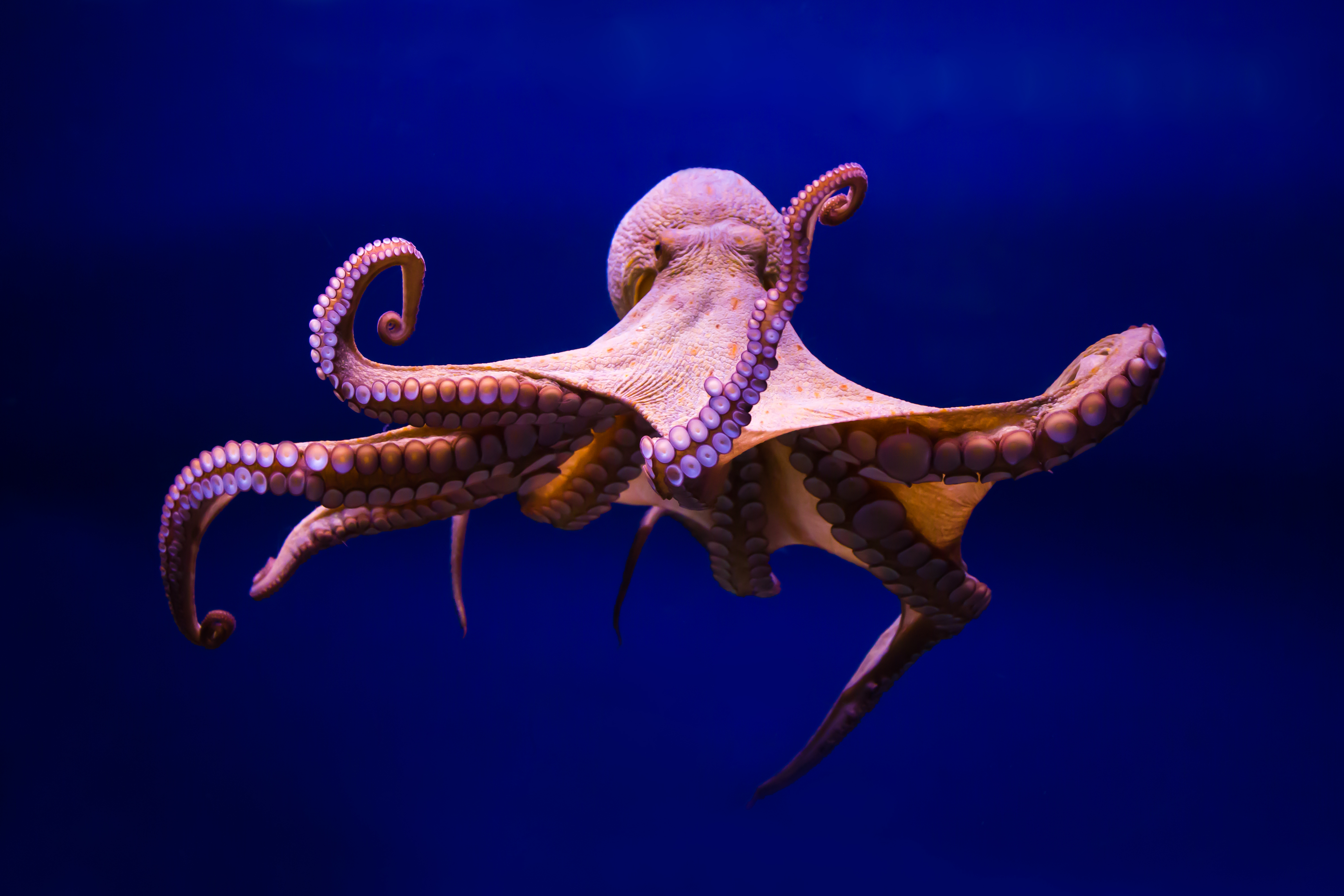It can be one person’s biggest fear, another’s yummiest delicacy.
It has as many arms as the Beatles, as many hearts as the Three Stooges, as many brains as Albert Einstein. It got here perhaps 300 million years before we did and may remain – thanks to its survival skills – after we’re gone.
It’s the octopus, the subject of the “Nature” season-opener Wednesday (Oct. 2) on PBS. It’s been known as the kraken in Norse mythology … and as Heidi (shown here) in David Scheel’s home.
“Friends (were) very taken with the animal,” Scheel said. “But the notion that it was in my living room was just a little bit odd.”
One of the people taken with Heidi was Scheel’s teen daughter, Laurel. She wanted a puppy but said she was “actually very happy to get any pet. And having an octopus is plenty of fun.”
David is an expert; he’s a professor of marine biology at Alaska Pacific University in Anchorage. Laurel isn’t; she’s 17, planning to study art and animation in college.
But both became enamored. Laurel, who was spending part of her time at her dad’s house, was in charge of the aquarium tank. “It sort of grew into more of a close relationship” with Heidi, she said.
Eventually, that ended. “Heidi was moved to another home in Anchorage, because we had some problems with our floor,” David said. “She lived out her days there and she passed away.”
By then, gorgeous footage had been shot for the documentary, despite the odds. “Octopuses are one of the most difficult animals I’ve ever filmed,” director Anna Fitch said. Heidi “was a troublemaker. She would do things to get to you or to play with you.”
The social side was clear. At times, Heidi’s arm would cling to Laurel’s, sometimes for 20 minutes. At other times, Heidi would play; an empty pill bottle made a good bobbing toy. And if the TV was on, she might move to that corner of her tank and pay attention.
She seemed to prefer comedies, especially “The Big Bang Theory,” Laurel said. “It has all the colors at the beginning and lots of colors spattered throughout.”
Her dad isn’t sure that’s the reason. Scientists have been studying the octopus for 60-plus years, he said, “and we still don’t know a really basic thing (such as) whether it can see color.”
They do know that there’s facial recognition. One team tested that by having one person be kind and the other be annoying; the octopus soon gravitated to the good one. For that reason, David Scheel even wore a mask when doing something (weighing, for instance) that Heidi wouldn’t like.
Scientists have assumed that an octopus is a loner. When two share an aquarium tank, Scheel said, “it’s not uncommon for the larger one to eat the smaller one.”
Lately, however, Australian researchers have found octopus colonies. That may be a special situation, Scheel said – ample food (no reason to compete) and a shortage of dens.
The fossil records are scant, so people can only guess that the octopus has been around for 300 million years … and will stay around for many more.
This is a shape-shifter and a color-changer, Scheel said. It’s “fast and flexible. And very visually oriented. (It’s) very fast, in terms of its response. Skin patterns can change in milliseconds.”
Also, it’s a pleasant houseguest.
— “Octopus: Making Contact,” 8 p.m. Wednesday (Oct. 2), PBS
— Season-opener for the “Nature” series
